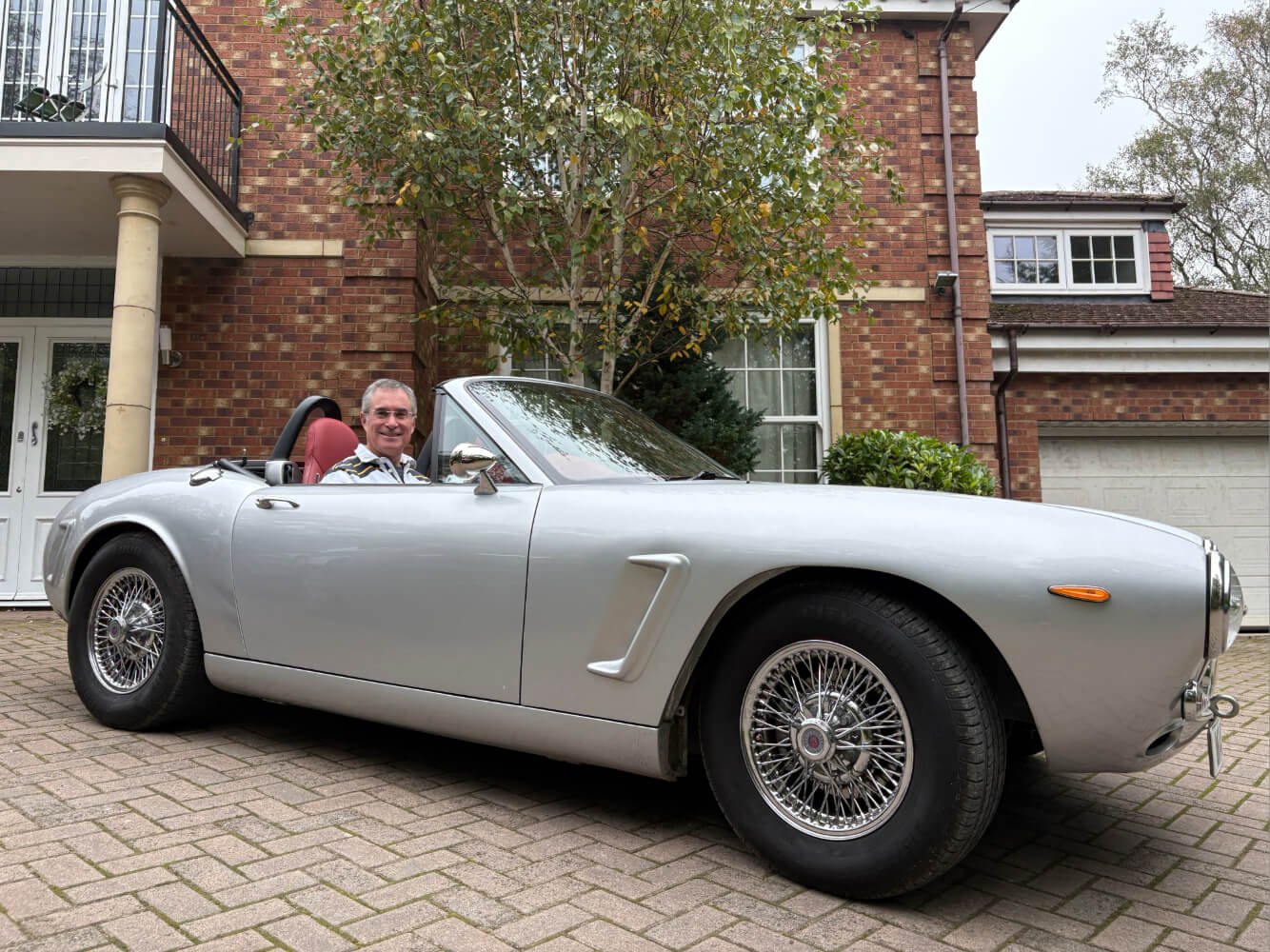Meet the IP Professional: Robin Bartle – Blending Argument, Invention, and Insight
Within the Bartle household, “being a patent attorney” has long been understood as a playful insult.
“It means you’re being pedantic, analytical, contrarian and generally insufferable,” laughs Robin Bartle. “My family seem to think I was just cut out for the job – and they’re probably right.”
It’s an introduction that captures Bartle perfectly: sharp, humorous, and thoughtful in equal measure. As co-founder and director of Bartle Read, a boutique intellectual property firm with offices in Liverpool and London, Robin brings more than twenty years of experience helping clients acquire, maintain, commercialise and enforce patents across mechanical, electrical, electronic and computer-based inventions.
The road to Bartle Read

After two decades in practice, including a long stint as an equity partner, Robin decided it was time to build something of his own.
“It was the best decision of my working life, bar none,” he says. “It’s never easy to walk away from a secure position and from colleagues one likes and respects. But there’s something hugely liberating about being able to arrange things just as one wants — especially in terms of how we work with clients. I think at some point in life, a lot of us just want to be our own boss.”
That independence has shaped Bartle Read’s culture ever since. “We’re a small firm with low overheads. That allows us to focus on what matters most: giving honest, practical advice and maintaining close, long-term relationships with clients.”
From LEDs to AI: the evolution of innovation
Across his career, Robin has seen successive waves of technological change transform the work of a patent attorney.
“When a new enabling technology comes along, we’re suddenly inundated with projects based on interesting new ways to use it,” he explains. “That happened when LEDs became bright enough for general illumination, or with satellite-based geolocation, Bluetooth®, phone apps — there are many examples.”
Today, he says, the same is happening with artificial intelligence.
“At the moment a great proportion of the start-up projects I’m seeing involve new ways of employing AI. It’s exciting because there’s no doubt the world is going to change enormously. There’s real commercial opportunity for organisations creative and determined enough to carve a niche. But it’s also a difficult area in terms of patentability. I worry the UK’s current approach could prove unhelpful to our domestic AI industry.”
The art of argument
Known for his love of intellectual wrangling, Robin has handled a wide range of contentious work — from European oppositions to infringement litigation. His advice to younger attorneys? “Keep calm, prepare meticulously, and never be afraid to give the client a blunt assessment.”
He adds, “The truth is that outcomes in contentious matters are often uncertain. The law presents itself as a coherent system leading to right and wrong answers. However, so much of what we do in IP — like judging whether an invention is ‘obvious’ — is inherently subjective. Two equally skilled judges can look at the same facts and come to opposite conclusions. That’s not a flaw, it’s part of the system. As advisers, we just have to be honest about uncertainty.”
Designs and disputes
Robin also has a particular interest in designs, having co-authored the Community Designs Handbook. “Rights in designs are actually quite limited in scope,” he says. “We see fewer blatant product clones than we did thirty years ago. Although, disputes still arise — often between parties who’ve worked together before. In those cases, unregistered design right can be a very useful tool for bringing a wayward manufacturer to heel.”
Straight talk and sound judgement
Despite the technical nature of his work, Robin believes that most legal issues aren’t as complex as they might seem — provided you’ve done the thinking first.
“An adviser’s job is to focus on the questions that matter to the client. Once you’re clear in your own mind what needs to be said, explaining it clearly tends to be easy enough. The tricky conversations are usually the ones where you haven’t quite decided what you think.”
Balancing budgets and business reality
Working with start-ups has given Robin a pragmatic view of IP strategy.
“I tend to encourage them to put attracting capital right at the top of the to-do list from day one,” he says. “Usually, patenting costs in the early stages are small compared to what’s needed to get to market. Once investment is secured, decisions about IP spend are rarely difficult. I often tell clients that the happiest projects are the ones spending other people’s money.”
That frankness extends to his advice on priorities: “I’m not someone who thinks IP is always the answer. Many great innovations can’t be patented, and many patents never make money. The key is to understand what job IP is going to do for the business — whether that’s securing funding or deterring competitors — and to plan spending accordingly.”
A philosophy of patience and precision
Asked what he’d tell his younger self, Robin offers an admirably dry answer:
“Follow your dreams, young man. Tear up that pinstripe suit and go on the stage!”
Then, more seriously: “The life of a patent attorney is ruled by deadlines. Procrastination is the cardinal sin. A retired admiral once told my wife the secret to a happy life was always doing the difficult jobs first — and the older I get, the more I try to observe it.”
Outside the office
When he’s not drafting patent applications or debating inventive step, Robin is most at home in his workshop. “I like making things of all sorts — furniture, toys, prototypes, even a home-built replica of a 1960s sports car,” he says. “Just let me alone in the shed, surrounded by wood or metal shavings with Radio 4 in the background, and I’m a happy man.”
About Bartle Read
Founded by Robin Bartle and David Read, Bartle Read is an independent intellectual property firm with offices in Liverpool and London, offering patent, design and IP enforcement expertise across a wide range of technologies. The firm’s ethos is built on clarity, accessibility and deep technical understanding — values reflected in the way its attorneys work closely with clients to craft practical IP strategies.
This month, David Read will represent the firm at the AIPLA Annual Conference, attending the Genetic Resources and Traditional Knowledge Task Force and Biotechnology Committee meetings, as well as at the Liverpool Innovation Investment Summit.
Partnering with PatWorld
At PatWorld, we’re proud to support boutique IP firms like Bartle Read with comprehensive patent search and intelligence services. From prior art and freedom-to-operate searches to competitor and landscape analysis, our tools help attorneys and their clients make informed, strategic decisions — saving time and improving the strength of every patent application. Get in touch with us today to learn how we can assist with your next project.


